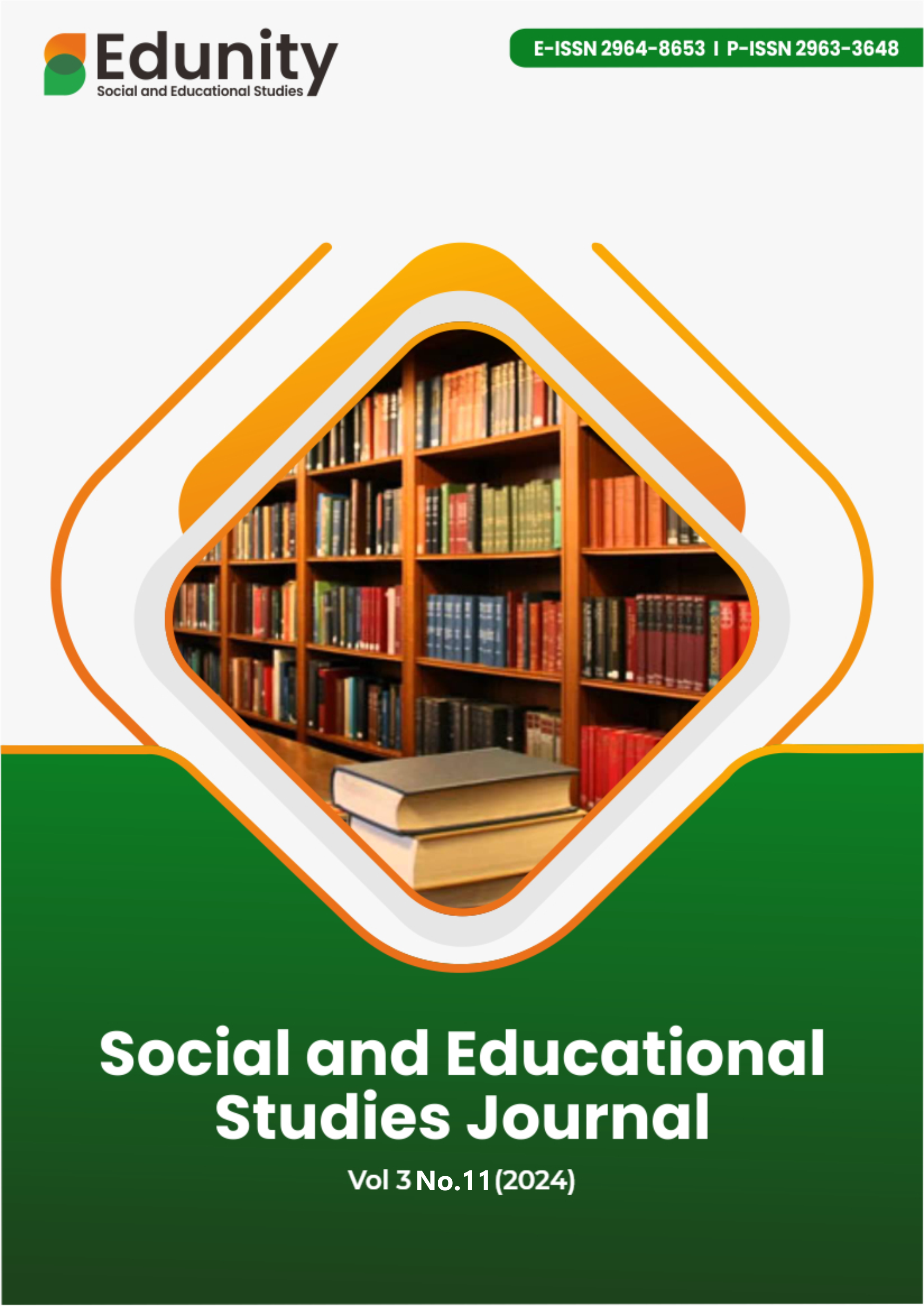A Clean Public Procurement System through Commitment Making Officials (PPK) Criminal Liability Reforms
DOI:
https://doi.org/10.57096/edunity.v3i11.335Keywords:
Vacancies of Officials, Regional Heads, Public Administration Services, InequalityAbstract
This research aims to explore a clean public procurement system through criminal
liability reform for Commitment Making Officials (PPK). PPK plays an important role
in maintaining accountability, transparency, and integrity in the public procurement
process. The research method used is a statutory approach and a conceptual approach.
This research analyzes the regulations governing PPK's responsibilities and how they
can be held criminally liable if proven to have abused their authority. It was found
that PPK is often the party fully responsible for irregularities in procurement, despite
the important role of other parties such as the Budget User (PA) and the Budget User
Authority (KPA). This research shows that to prevent corrupt practices, stricter
monitoring mechanisms and increased legal awareness among PPKs are needed.
Criminal liability reform for PPKs is essential to create a more transparent and
accountable public procurement of goods and services. Better understanding of legal
responsibilities and training for PVRs can reduce the risk of abuse of authority.
Achieving a clean procurement system requires improvements in regulation and
oversight, as well as capacity building for PVRs. These reforms will support
corruption prevention efforts and maximize benefits for society and the state.
References
Astuti, I. I. (n.d.). A Culture of Smiling and Greetings as Bureaucracy Reform in Public Services at
the Chemical Analyst High School Padang, West Sumatera.
Bhagat, G., & Jha, K. N. (2024). Exploring the Impact of the Integrity Climate on Integrity
Violations in Public Procurement: A Partial Least Square Structural Equation Modeling
Approach. Journal of Legal Affairs and Dispute Resolution in Engineering and
Construction, 16(1), 4523042.
FismanFisman, R., & Golden, M. A. (2017). (2017). Corruption: What everyone needs to know.
Oxford University Press.
Georgieva, I. (2017). Using Transparency Against Corruption in Public Procurement (Vol. 167).
Springer.
Istiqlallia, N. F., Ardelia, R., & Ramadhanti, P. (2020). Pertanggungjawaban Hukum Pejabat
Pembuat Komitmen (Ppk) Dalam Pengadaan Barang/Jasa Pemerintah. Perspektif, 25(2),
–134.
John Michael, I. (2019). Procurement practices and service delivery in local governments.
Kampala International University.
Kapti, P. T. E., Kamil, M., & Salahudin, S. (2019). Implementation of the Integrity Zone
Development Program towards a Corruption-Free Area and a Serving Clean Bureaucracy
Region. Journal of Local Government Issues (LOGOS), 2(2), 134–148.
Made, W. H. (2017). Kedudukan Pejabat Pembuat Komitmen dalam Pengelolaan Keuangan
Daerah di Kabupaten Sidoarjo. JKMP (Jurnal Kebijakan Dan Manajemen Publik), 5(1), 61–
Mahardhika, V. (2021). Pertanggungjawaban Pidana Pejabat Pembuat Komitmen Sebagai
Upaya Pencegahan Korupsi Pengadaan Barang/Jasa Pemerintah. Jurnal Hukum Samudra
Keadilan, 16(1), 140–155.
Nambassa, G., & Nurmandi, A. (2024). EGDI Impact on Control Corruption in Africa: Exploring
E-Government Development Index. Policy & Governance Review, 8(3), 269–283.
Nila, B. S. B., & Wahyudi, R. (2024). Factors Affecting The Achievement Of The Integrity Zone
Predicate For A Clean And Serving Bureaucracy (Wbbm) In The Office Of The Pekanbaru
City Land Agency. Indonesian Journal of Social Sciences, Policy and Politics, 2(2), 54–61.
Novius, A. (2024). Analysis of Factors Influencing Procurement Fraud in Government Agencies
Environment (Case Study at Regional Apparatus in “XYZ” Regency). InJEBA: International
Journal of Economics, Business and Accounting, 2(1), 76–86.
Shaleha, Q. I., & Shaleha, S. M. (2021). The Implementation of Good Corporate Governance
(GCG) Principles Over Goods & Services Procurement Over PT. Angkasa Pura Solusi.
Journal of Multidisciplinary Academic, 5(3), 222–229.
Sitompul, A. (2022). E-procurement system in the mechanism of procurement of goods and
services electronically. International Asia Of Law and Money Laundering (IAML), 1(1), 57–
Susila, A., & Suharso, S. (2018). Eradication Development of Corruption and Neoliberalism in
the Current Era. Varia Justicia, 14(2), 94–100.

Downloads
Published
Issue
Section
License
Copyright (c) 2024 Umar Maksum, Ade Saptomo

This work is licensed under a Creative Commons Attribution-ShareAlike 4.0 International License.
Authors who publish with this journal agree to the following terms:
- Authors retain copyright and grant the journal right of first publication with the work simultaneously licensed under aCreative Commons Attribution-ShareAlike 4.0 International (CC-BY-SA). that allows others to share the work with an acknowledgement of the work's authorship and initial publication in this journal.
- Authors are able to enter into separate, additional contractual arrangements for the non-exclusive distribution of the journal's published version of the work (e.g., post it to an institutional repository or publish it in a book), with an acknowledgement of its initial publication in this journal.
- Authors are permitted and encouraged to post their work online (e.g., in institutional repositories or on their website) prior to and during the submission process, as it can lead to productive exchanges, as well as earlier and greater citation of published work.







